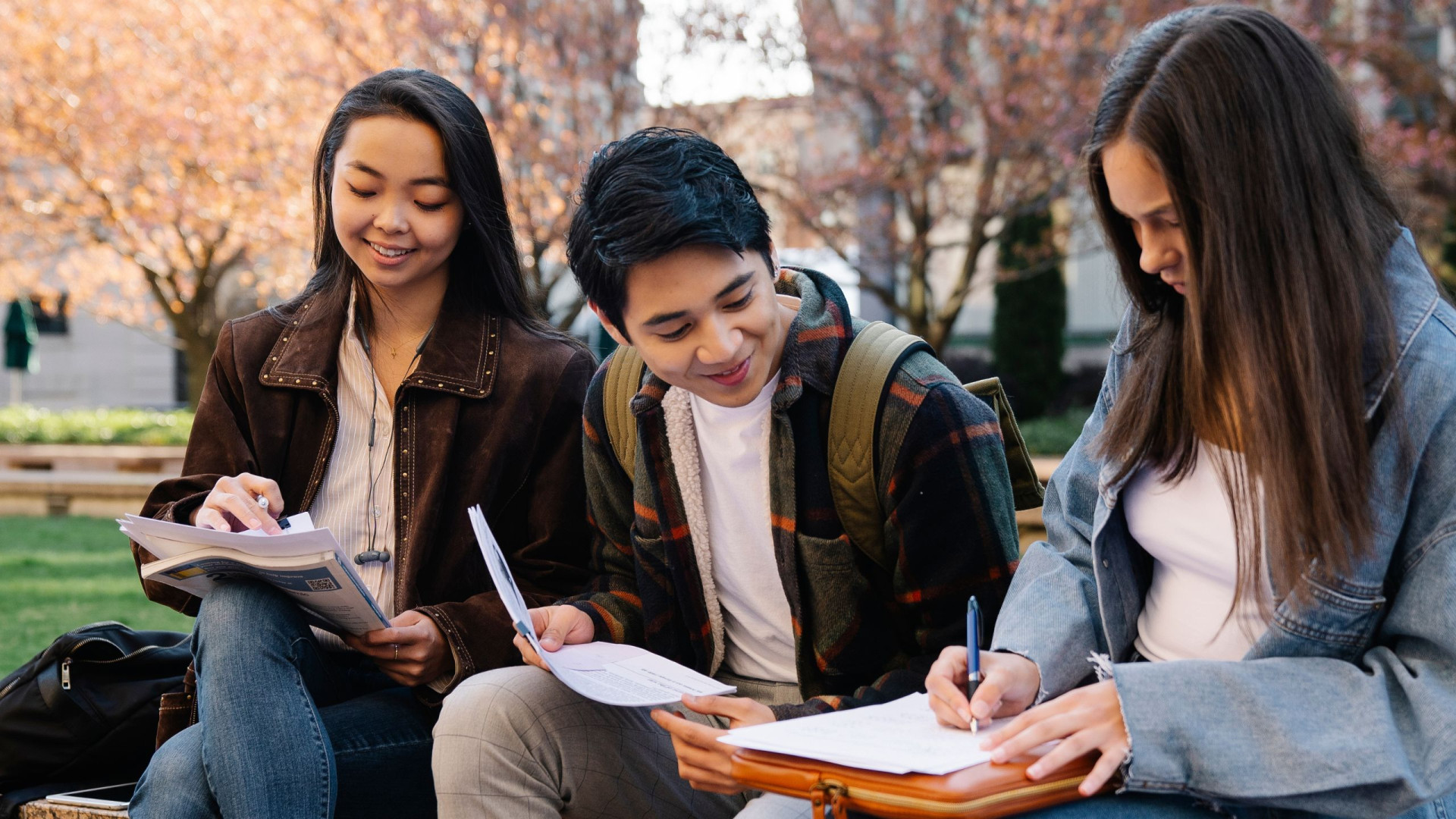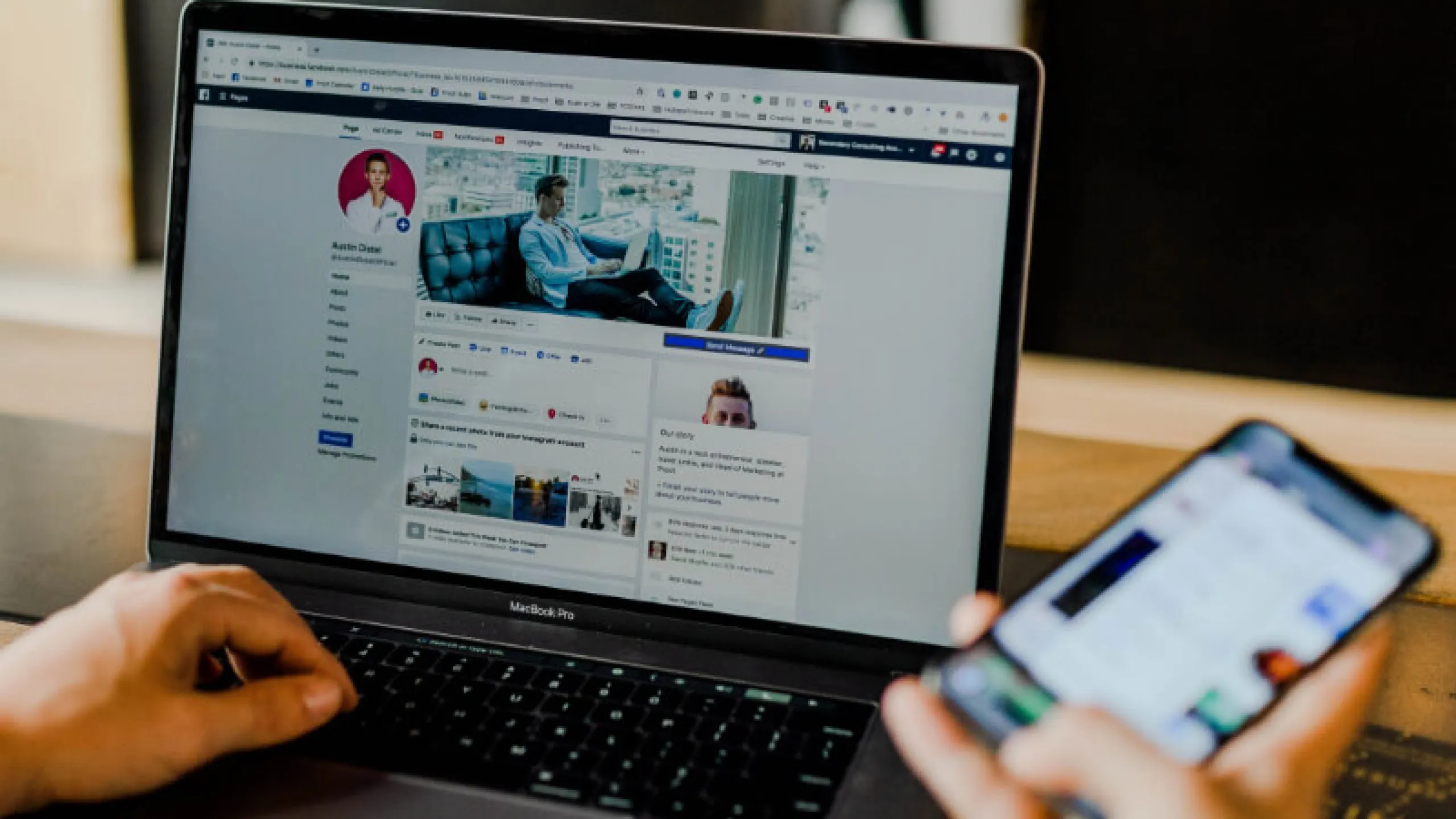Updated on 26.06.2025
Interview appointments for F, J, and M visas are once again possible – provided that applicants disclose all social media accounts with immediate effect.
Share article:

The US government has lifted its ban on issuing student visas. However, all applicants for an F, M, or J visa are now required to set the privacy settings of their social media accounts to "public" in order to make it easier for US authorities to verify their identity and eligibility for entry.
On May 27, 2025, the U.S. Department of State (DOS) issued a wide-ranging directive requiring all US embassies and consulates worldwide to stop issuing new visa interview appointments for F Academic Student, J Exchange Visitor and M Vocational or Nonacademic Student visas until further notice. The reason for this was a comprehensive review of internal screening and verification procedures in the visa application process.
Since June 19, 2025, new interview appointments have been possible again – but under stricter requirements with regard to the digital verification of applicants. Specifically, the U.S. State Department requires the disclosure of all social media accounts under the new policy. These must be publicly accessible. Refusal to comply with this request may have a negative impact on the visa decision.
Appointments at US consulates are currently being resumed on a gradual basis. While some US consulates are already offering appointments, there are still consular offices where no appointments are available (yet). For Germany, appointments for F / J / M visa interviews can currently only be booked at the US Consulate General in Frankfurt / Main and Munich.
The new regulations affect all applicants in categories F, J, and M – including international students, researchers, au pairs, participants in high school or exchange programs, and interns. The requirements apply regardless of the educational institution or specific program.
According to the U.S. State Department, the aim of the expanded checks is to identify applicants with potentially hostile attitudes toward the United States.
There is likely to be considerable demand for the available appointments, which will lead to longer waiting times at the individual consular offices.
Individuals who urgently need an F, J, or M interview appointment should have already completed all application steps so that they can act quickly and book an appointment.
As a specialized agency for US visas, we are able to immediately identify and secure available appointments for our customers in the appointment booking system.
Use our US Visa Service to simplify the complex US visa application process and ensure that all application steps are completed correctly and on time.
The reason for the short-term blocking of appointments was that the US government will be conducting even more intensive checks on the social media activities of visa applicants in categories F, J or M. This is part of more comprehensive security checks, which will also include analyzing public online statements.
These enhanced security checks are now part of the visa application process at US consulates worldwide. Following their implementation, new interview appointments have been released for the visa categories affected. The U.S. State Department announced that the expanded social media screenings will impact consular operations, processes and resource allocation.
Social media screening affects both visa applicants and holders of F, J and M visas who are currently in the United States.
Effective immediately, all individuals applying for an F, M, or J nonimmigrant visa are requested to set the privacy settings of all their social media accounts to "public." This is to enable verification of identity and eligibility for entry.
F, J, and M visa applicants should carefully review all social media profiles, remove any posts, comments, etc. that could be interpreted as critical or misleading, and then set them to "public."
| Scenario | Possible consequences |
| social media profile(s) "public" – no problematic content | no negative consequences to be expected |
| social media profile(s) "public" – problematic content | delays in the application process, additional checks, or possible visa refusal |
| social media profile(s) "private" | suspicion of concealment; this could lead to delays in the application process, additional checks, or, possibly, rejection of the visa application |

It remains to be seen how the monitoring of online activities will play out in practice and what specific measures will be implemented. Additional requirements such as the provision of certain security-related documents and longer processing times or waiting times for passport return due to more intensive preliminary checks of social media channels are possible.
Following initial feedback from applicants, a brief check of the social media accounts provided in the DS-160 form is carried out in advance. If these are set to "private", the applicants are asked during the interview appointment to subsequently set them to "public" and inform the US consulate of this if necessary. There are no standardized procedures here.
Some applicants reported being asked by the consular officers during the interview about other social media profiles that were not specified in the DS-160 form. Or they were asked directly whether they had any other social media profiles and had to name them (platform plus username).
Subsequently, a more detailed examination seems to take place again, which is currently delaying the delivery of passports and visas, at least in Germany.
Even individuals who are already in the USA with an F, J or M visa could, in the worst case, face the revocation of their visa and the associated loss of their valid residence status if the US authorities identify problematic content when checking their social media channels.
So far, what's seen as "problematic" has only been mentioned in internal instructions to US consulates:
On June 4, 2025, US President Donald Trump signed a proclamation entitled "Enhancing National Security by Addressing Risks at Harvard University" which imposes significant restrictions on international students and researchers at Harvard University. The measure is justified on the grounds of national security concerns and affects Harvard exclusively – no other US universities are affected.
It suspends the issuance of F, J, and M visas for new programs at Harvard University for an initial period of 6 months and prohibits affected individuals from entering the country, even if they have already been granted a visa.
US District Judge Allison Burroughs already stopped the proclamation from being implemented on June 5, 2025, by means of a temporary restraining order. The block on Trump's entry ban for international Harvard students has been extended several times and will now remain in effect indefinitely while the proceedings continue.
Until a final ruling is made, US consulates may continue to issue visas to Harvard students, and entry into the country remains permitted.
The proclamation concerns all foreign nationals that are new at the Harvard University and
The applicant's country of origin is irrelevant.
In addition, the U.S. Department of State can revoke existing US visas in these categories for international Harvard members if they have not yet entered the country. However, this may also continue to affect groups of people who are already in the United States with the aforementioned US visas and who are classified as a security risk in the course of the security checks currently being carried out by the U.S. Department of Homeland Security (DHS) and the U.S. Department of State (DOS).
More than 7,000 international students and researchers at Harvard University are directly affected by the measures. The decision could also affect the university's international reputation and lead to fewer international applicants choosing Harvard in the future.

The proclamation does not apply to
In addition, individual exemptions may be granted on a case-by-case basis by the U.S. Secretary of State or U.S. Secretary of Homeland Security if there is a proven US national interest.
The US government justifies the measure with national security interests. According to the statement, Harvard had not cooperated sufficiently with the authorities in passing on security-related information about international students. In addition, there had been an increase in violent incidents on campus, to which the university had not responded appropriately. According to the government, financial donations from abroad, particularly from China, also raised concerns – especially with regard to possible influence on research and technology.
Harvard described the measure as unconstitutional and filed a lawsuit against the US government. Other universities and organizations (national and international) also expressed criticism and warned of negative effects on international academic exchange.
As mentioned, the application of the proclamation was temporarily halted on June 5, 2025 by an injunction issued by a US federal court.
The U.S. Department of Homeland Security (DHS) had already previously revoked Harvard's SEVP certification and SEVIS registration. This would have meant that Harvard would no longer have been able to accept international students and researchers under F and J visas.
However, a US district court temporarily halted this measure with a temporary injunction. Currently, F, J and M visa holders who are already in the United States or who are continuing an "existing" program are still legally protected. The final court decision is still pending.
The proclamation thus represents an additional measure that is specifically directed against Harvard University.
The current developments – including resuming interviews for F, J, and M visas along with stricter social media checks and extra measures against Harvard – are part of a broader shift toward security in US immigration policy.
One of the triggers for the stricter controls are the nationwide protests at US universities, in which international students also took part. The US government emphasizes that visa applications will be checked more intensively in future for security-related aspects, including the analysis of social media activities. In the case of Harvard, reference was made to alleged failures in dealing with campus-related protests.
The latest measures taken by the US government show how quickly general conditions can change in the visa application process. This makes it all the more important to plan this early and work with the most flexible time frames possible.
Individuals who are looking to undertake training or further education in the United States as well as companies with a connection to the US and their interns should not be unsettled now, but should rely on reliable advice and up-to-date information. We recommend not to cancel planned programs prematurely, but rather to monitor the situation closely and to schedule interview appointments quickly.
In particular, F, J and M applicants or travelers for new programs at Harvard University should coordinate closely with the administration there.
We will continue to be at your side as a reliable partner. Our US Visa Service team is working in the system every day, recognizes changes at an early stage and keeps our customers informed on an ongoing basis. We are currently monitoring appointment availability closely and securing immediately available interview slots for our customers.
Date:
Wir und unsere Partner nutzen Cookies, um personenbezogene Daten wie z.B. Browsing-Daten zu speichern und abzurufen, um z.B. Inhalte und Werbung bereitzustellen und zu personalisieren sowie die Verwendung der Website zu analysieren und das Benutzererlebnis zu verbessern. Sie erfahren mehr über die Zwecke, für welche wir und unsere Partner Cookies einsetzen, wenn Sie unten auf den Button „Cookie Einstellungen“ klicken. Hier können sämtliche Einstellungen auch geändert werden. Nachträglich kann man jederzeit seine Cookie-Auswahl überdenken oder seine Einwilligung widerrufen, indem man auf den Link zu den Cookie-Einstellungen im Footer unserer Webseite klickt. Beachten Sie bitte, dass das Blockieren einiger Cookie-Typen unsere Möglichkeiten zur Bereitstellung von auf Ihre Interessen zugeschnittenen Inhalten haben kann oder einige Funktionen der Webseite nur eingeschränkt zur Verfügung stehen.
Durch klicken auf “Alle Cookies akzeptieren” stimmen Sie unserer Nutzung und der Weitergabe Ihrer Daten an unsere Partner zu.